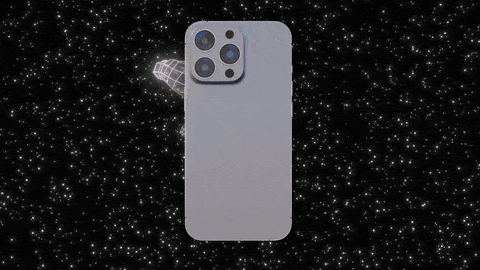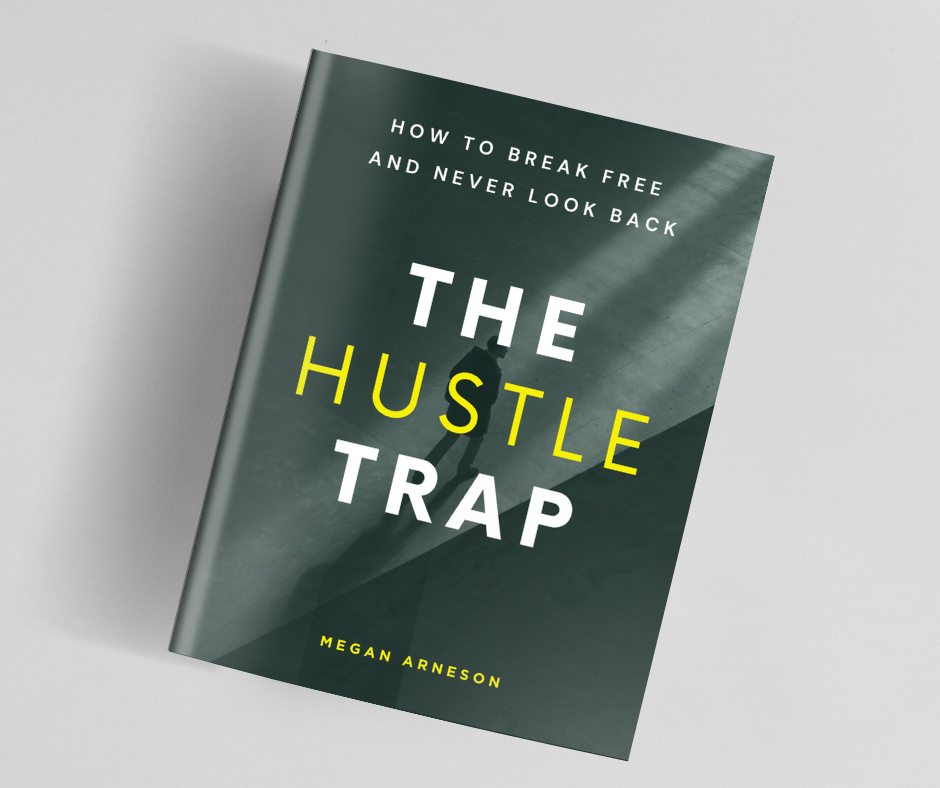social media sucks! 🙄
I've been feeling totally repulsed by social media recently.
Actually, the word I've been using is ALLERGIC.
This isn’t the first time I’ve felt this way—I’ve taken long breaks before, but this time it feels different.
I took almost 3 years off LinkedIn because I was so sick of watching former colleagues and associates (not-at-all-humbly) brag about their career accomplishments without sharing any actual value.
(This btw, was a signal for me to do my own work on my judgmental nature – something I highly encourage everyone to do when you get triggered by other people’s behaviors, which are none of your business. My result: Be the change you want to see ... duh.)
Then earlier this year, my Facebook business account was hacked and shut down, and it wiped out my business FB, as well as my personal FB account, and the IG account that I’d built to well over 50k followers.
I set up new accounts, but based on zero history, it was really challenging to rebuild, which only deepened my realization: maybe I don’t need social media as much as I thought I did.
A few weeks ago, I came across an article about Jeff Bezos that mentioned that he has a no-phone rule before 9am.
It struck a chord.
I had only recently fallen into the habit of rolling over in bed, grabbing my phone, and diving straight into social media, emails, and the endless scroll.
And then trying to break myself from it to go exercise and mediate.
And I would find myself on my meditation cushion, casually picking up my phone to start my meditation timer, and 20 minutes later, I’d wake up completely mindlessly lost in a black-hole on Instagram ... NOT meditating.
WTF? Where did this come from? Who AM I??
I decided to make a change: no phone before 9 a.m. (Hey, if it’s good enough for JB …)
At first, it felt almost impossible.
My hand automatically reached for my phone out of sheer muscle memory.
But after just a few days, I started to notice a real difference.
Mornings felt calmer, more spacious, and more mine.
My workouts were better.
My meditations were deeper.
And when it came time to dive into work, I had an easier time focusing faster.
Here’s what REALLY surprised me though:
By breaking the habit of checking my phone in the morning, my desire to engage with social media at all has significantly waned.
It’s like clearing that first hurdle gave me the momentum to reclaim my time and energy throughout the rest of the day.
Why Social Media Sucks
Social media has its place—I’ve used it to build connections, share insights, and grow my business.
I've LEARNED A LOT there!!
But it also comes with a host of problems that we don’t talk about nearly enough, especially for those of us balancing careers, families, aging parents and everything else life throws at us after age 35.
And btw, I know that I’m not telling you anything you don’t already know here … but if you’re caught in a mindless scroll-loop like I was, maybe a little refresher with some real data behind it is in order??
1. It Sucks Our Energy
Social media platforms are designed to keep us hooked, delivering dopamine hits with every like, comment, and notification. But this constant engagement comes at a cost: it drains our mental, physical, and emotional energy. Research shows that heavy social media users report higher levels of fatigue and burnout due to the constant stimulation and pressure to stay connected【1】【2】. THIS IS WHAT KEEPS US IN THE HUSTLE!!
2. It Sucks Our Focus
Social media isn’t just a distraction; it’s a focus killer. Studies show that frequent social media use reduces our ability to concentrate on meaningful work. The constant switching between tasks (emails, notifications, scrolling) disrupts deep focus, making it harder to stay on track with our goals【3】【4】. Hustle, anyone??
3. It Sucks Our Sleep
Blue light from screens messes with our circadian rhythms, suppressing melatonin production and leading to poor sleep quality. Add to that the mental stimulation from endless scrolling before bed, and it’s no wonder we wake up feeling groggy and unrested【5】【6】. And how are you supposed to find the flow from that energy??
4. It Sucks Our Self-Worth
We’ve all been there: comparing ourselves to carefully curated highlight reels of other people’s lives. Studies have repeatedly shown a link between social media use and decreased self-esteem, increased anxiety, and even depression. The more time we spend online, the worse we tend to feel about ourselves【7】【8】. Oooh, ooh, I know: Try hustling more to increase your feeling of worthiness!
5. It Sucks Our Time
Social media platforms are black holes for time. The average person spends over two hours a day on social media, which adds up to more than a month every year. Imagine what we could accomplish if we used even a fraction of that time on something more meaningful【9】. Need I say more?
6. It Sucks Our Creativity
Creativity thrives in quiet moments, but social media keeps our brains in a constant state of reaction. Instead of generating new ideas, we’re stuck passively consuming content, leaving little mental bandwidth for original thought【10】. This is the opposite of flow.
7. It Sucks Our Relationships
While social media promises connection, most interactions on these platforms are shallow at best. Studies show that excessive social media use can actually increase feelings of loneliness and reduce the quality of our real-life relationships【11】【12】. So we work more to keep those feelings at bay. See how this becomes an endless loop?
What’s Next
Well, never say never!
I’m not saying I’ll never use IG or FB again.
They’ve been helpful tools in the past, and I’ve had some great moments connecting with others through it.
But right now, the downsides feel heavier than the benefits.
Here’s what I’m focusing on instead:
This Newsletter
Writing here feels more aligned with how I want to show up and connect. It gives me space to share ideas in a more thoughtful and meaningful way.
YouTube
I’m excited to be launching a YouTube channel soon (er, finally!) It feels like a platform where I can connect authentically with people who are genuinely interested in what I have to share—without the pressure to constantly chase growth or engagement metrics.
I’ll continue sharing updates and engaging with my audience on LinkedIn, which feels like a healthier and more focused space for me right now. Especially since I feel like I can really add value for my ideal audience there.
If you’re feeling similarly fed up with social media, I encourage you to experiment with boundaries—whether that’s a no-phone rule in the morning or a full-on detox.
You might be surprised at how much lighter and freer you feel.
And if you’re looking for a more intentional way to connect, stick around here and keep an eye out for the YouTube launch.
Together, we can create space for what really matters.
P.S. If all you’re looking at is comedy, and ridiculous memes, you might find IG an uplifting part of your day! That's a legit argument, but how many of you have your algorithm SO DIALED that you’re ONLY seeing the funny shit? (Just sayin'.)
References
Alter, A. (2017). Irresistible: The Rise of Addictive Technology and the Business of Keeping Us Hooked.
Kuss, D. J., & Griffiths, M. D. (2015). Social Networking Sites and Addiction: Ten Lessons Learned. International Journal of Environmental Research and Public Health.
Gazzaley, A., & Rosen, L. D. (2016). The Distracted Mind: Ancient Brains in a High-Tech World.
Hunt, M. G., Marx, R., Lipson, C., & Young, J. (2018). No More FOMO: Limiting Social Media Decreases Loneliness and Depression. Journal of Social and Clinical Psychology.
Chang, A. M., et al. (2015). Evening Use of Light-Emitting eReaders Negatively Affects Sleep, Circadian Timing, and Next-Morning Alertness. PNAS.
Hansraj, K. K. (2014). Assessment of Stresses in the Cervical Spine Caused by Posture and Position of the Head. Surgical Technology International.
Primack, B. A., et al. (2017). Social Media Use and Perceived Social Isolation Among Young Adults in the U.S. American Journal of Preventive Medicine.
Twenge, J. M., et al. (2018). Associations Between Screen Time and Lower Psychological Well-Being Among Children and Adolescents. Preventive Medicine Reports.
WHO Guidelines on Physical Activity and Sedentary Behaviour (2020).
Csikszentmihalyi, M. (1996). Creativity: Flow and the Psychology of Discovery and Invention.
Twenge, J. M., et al. (2018). Time Spent on Social Media and Loneliness: Associations and Moderators. Journal of Adolescence.
Przybylski, A. K., & Weinstein, N. (2017). A Large-Scale Test of the Goldilocks Hypothesis: Quantifying the Relations Between Digital-Screen Use and the Mental Well-Being of Adolescents. Psychological Science.


